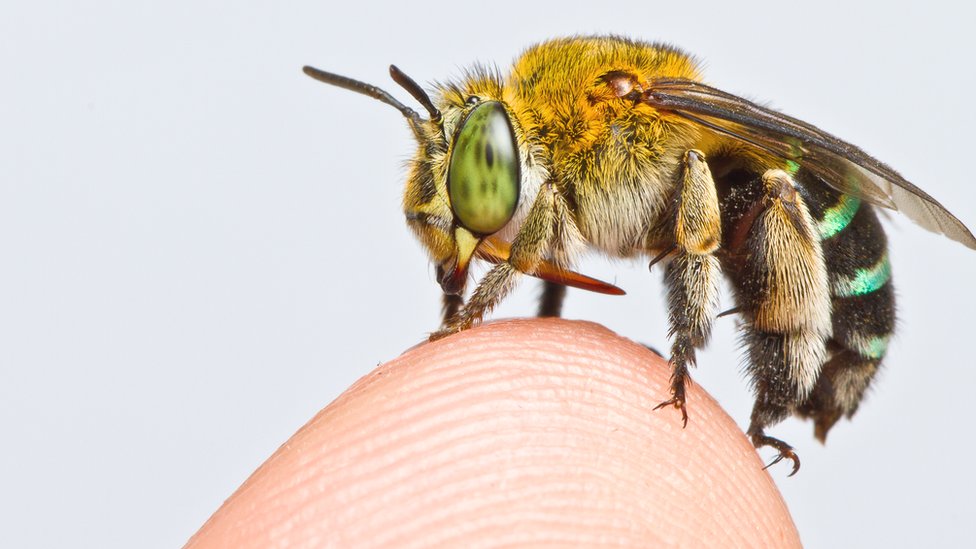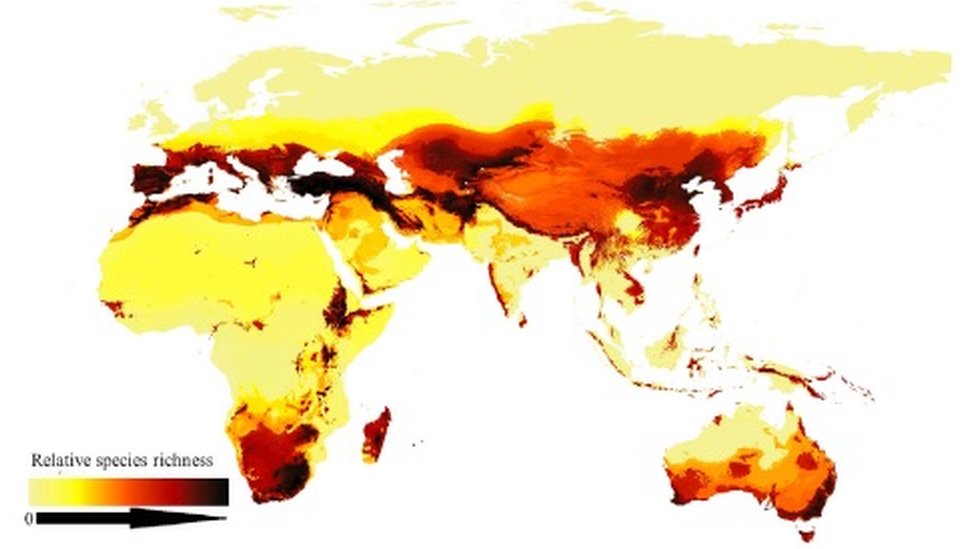

image copyrightZestin Soh
Scientists have mapped the distribution of all 20,000 bee species on earth.
The new global map of bees will help in the conservation of the insects we rely on to pollinate our crops, say researchers in Singapore and China .
Bees are facing pressure on their population numbers from habitat loss and the use of pesticides.
Yet little is known about the array of species living on every continent save Antarctica, ranging from tiny stingless bees to bees the size of a human thumb.
Bees provide essential services to our ecosystems and are the major pollinators of many of our staple foods. Yet, until now, we have not had the data to show where on the planet most species are, said Dr Alice Hughes of the Chinese Academy of Sciences in Yunnan.
“Here we combine millions of records to create the first maps of global bee richness, and understand why we see these patterns,” she told BBC News.
“These maps, and our framework, can then form the basis of future work, enabling us to better understand patterns of bee richness and ensure that they are effectively conserved into the future.”


image copyrightCurrent Biology
Some bee species, such as bumblebees, in areas like Europe and North America, are well studied.
But in other regions, such as large parts of Asia and Africa, documentation has been sparse.
While there remains a lot to learn about what drives bee diversity, the research team hopes their work will help in the conservation of bees as global pollinators.
Dr John Ascher of the National University of Singapore said: “By establishing a more reliable baseline we can more precisely characterise bee declines and better distinguish areas less suitable for bees from areas where bees should thrive but have been reduced by threats such as pesticides, loss of natural habitat, and overgrazing.”
image copyrightZestin Soh
To create their map, the researchers compared data about the occurrence of individual bee species with a checklist of over 20,000 species compiled by Dr Ascher.
This gave a clearer picture of how the many species of bees are distributed around the world.
The study has confirmed that unlike other creatures, such as birds and mammals, more bee species are found in dry, temperate areas away from the poles than in tropical environments nearer the equator.
There are more in the Northern Hemisphere than the Southern, with hotspots in parts of the US, Africa and the Middle East.
There are far fewer bee species in forests and jungles than in desert environments because trees tend to provide fewer sources of food for bees than plants and flowers.
The reported plunge in some insect populations has caused alarm, with calls for better monitoring.
The sheer number of insect species on the planet – upwards of 900,000 – makes this is a monumental task, with millions of specimens awaiting identification in museums.
Insects are often overlooked in global assessments of biodiversity, in favour of mammals, birds, reptiles and amphibians.
The research is published in the journal Current Biology.
Follow Helen on Twitter.
Read MoreFeedzy
There’s nothing worse than lighting a new candle and watching it sputter out, tunnel, or…
Discover how woven metal fabric transforms restaurant design with its versatility, from feature walls to…
Upgrading your workspace? Get inspired by design ideas for materials, lighting, and amenities, and tips…
In recent years, the global interest in peptides has surged due to their wide-ranging benefits…
Maximize your workspace without overspending. Explore practical ways to expand your office using smart layouts,…
Discover how to create a thriving STEM community through hands-on, collaborative projects that are perfect…